How to Use the OWL as an OER Primary Text in Different Types of Writing Classes
by Elizabeth Johnston

When I first started teaching English 101 twenty years ago at West Virginia University, I used a reader and what probably amounted to an unofficial OER—a binder of resources created for all instructors by the Composition Director. Both texts were required; graduate teaching assistants and adjunct instructors did not get to choose materials. When I took a visiting position at Indiana University of Pennsylvania in 2001, I switched to using the text recommended by their department. When I finally landed a tenure track position at Monroe Community College in 2004, I was able to freely choose the text for my composition course. I had never had the opportunity or motivation to consider price, and so I didn’t this time, either. Publishers sent me exam copies and I picked the one that I liked best. It never occurred to me what the cost might be. Part of that ignorance stems from my privilege: when I was in college, my middle-class parents paid my tuition and books for me. Then, I hadn’t even glanced at the prices (in fact, I often bought more books than were required!).
But students at MCC were showing up to my class without their books. At first I assumed laziness or failed prioritizing. One day, an earnest student met me at my office to discuss her missing work. When she divulged the cost of the book I had so eagerly adopted, I nearly fell off my chair. I immediately began to seek out alternatives (books packaged with other books; custom style manuals; electronic supplements available with a pin that came packaged with books; condensed versions of the books; teeny-tiny pocket-sized books, etc., etc.). Still, I was unhappy and so were my students.
And then Excelsior University reached out to me about a pilot using the OWL (at the time I was the Composition Coordinator at MCC). I eagerly signed on. After a very successful semester piloting the then brand new Argument & Critical Thinking section of the OWL, I wound up abandoning the text I was using and began to use the OWL as my primary text in the course.
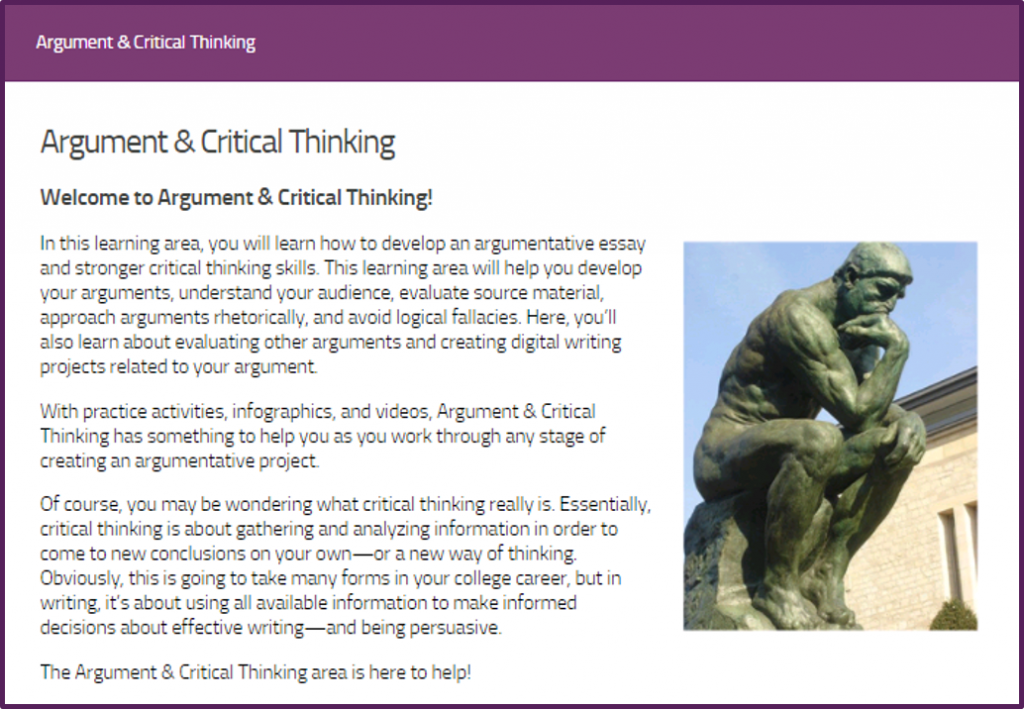
The switch was rather easy, especially as MCC had also begun to provide Blackboard shells for all courses, online and face-to-face. This meant I could embed direct links from the OWL into my Blackboard courses… and I began to do so in ALL of my courses.
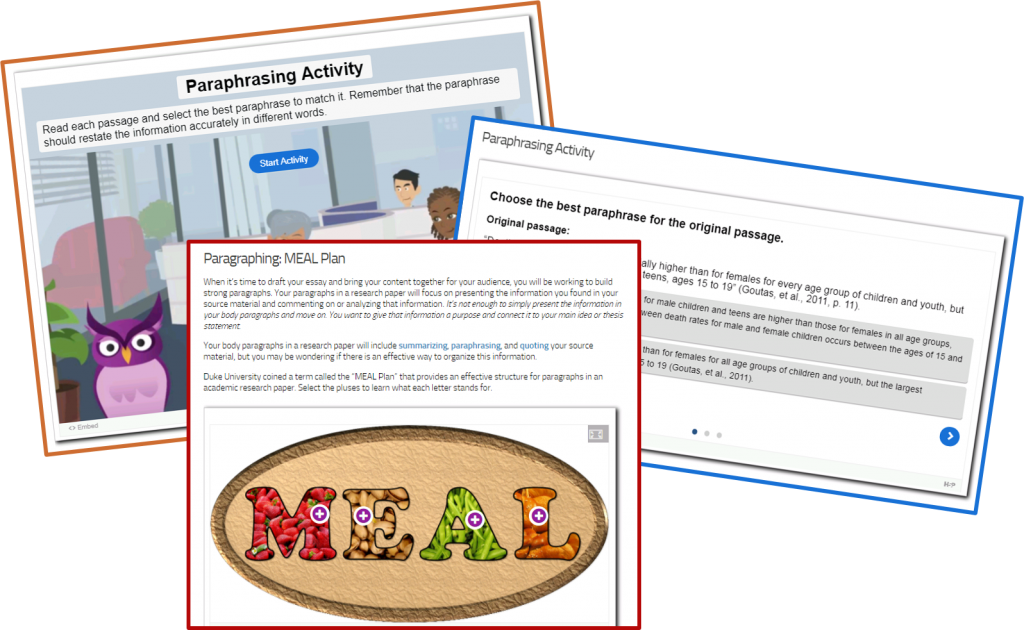
In my English 101 (College Composition Course), I tend to rely mostly on the following sections of the OWL: Research, Citation & Documentation, Rhetorical Styles, Argument & Critical Thinking, and Avoiding Plagiarism. Because all of the writing in English 101 at MCC is source-based, these sections have paired nicely with the assignments I teach. Often, I ask students to read and/or view the tutorials on the OWL for homework. For example, when students are working on integrating source material into a paragraph, they view the interactive MEAL Plan graphic; I then have them diagram their sentences according to the MEAL plan. When they’re working on paraphrasing, I’ll have them do the interactive Paraphrasing Activity on their own. There is also a Paraphrasing Self-Quiz available in the Online Reading Comprehension Lab (ORC) I sometimes assign, too. Then, they might have to practice paraphrasing for homework.
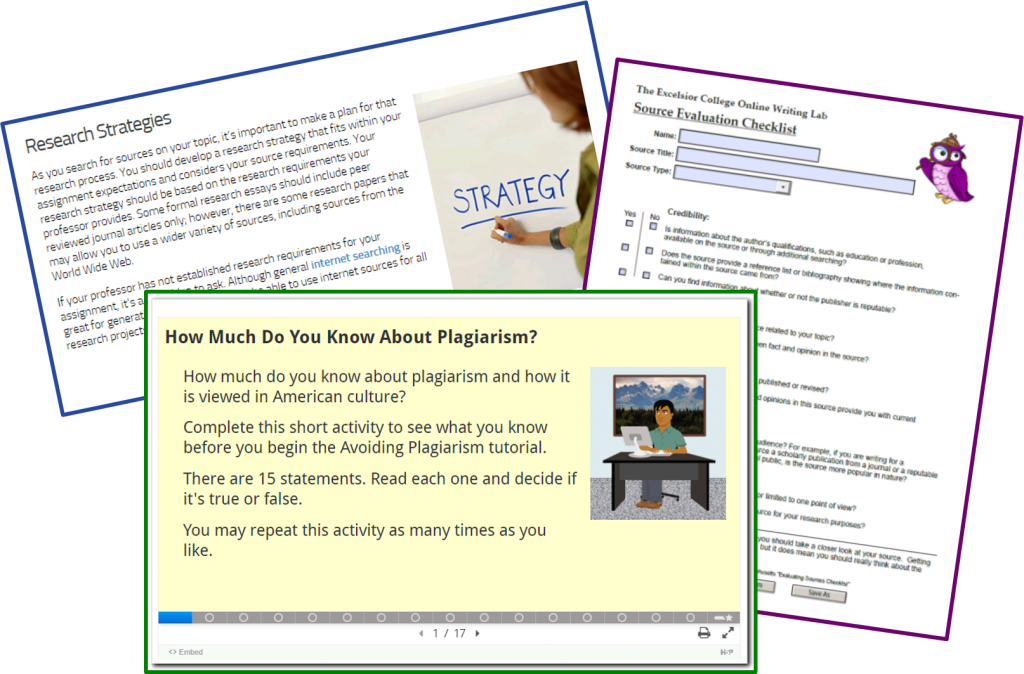
Sometimes we also do the activities in class together; this is especially helpful when during ‘check-in’ it becomes apparent that they are confused by the concepts. When we’re moving into our research projects, I assign pieces of the Research section as we move through each stage. For example, when students are working on identifying topics, they review the Narrowing & Developing section. Before students gather their material, I go over the Research Strategies section in class; for homework I ask them to find and evaluate sources according to rules laid out by the tutorials in Evaluating Sources. For each source, I ask students to use the Evaluation Checklist (which they can either download or print). I typically assign the How Much Do You Know about Plagiarism? self-quiz for homework along with the tutorial in the Avoiding Plagiarism section. The Try it Out Paraphrasing & Plagiarism activity is also a helpful review tool for the students, as is the Check Your Understanding of Plagiarism self-quiz (I like to do this one in class as a group so we can discuss what confuses them).
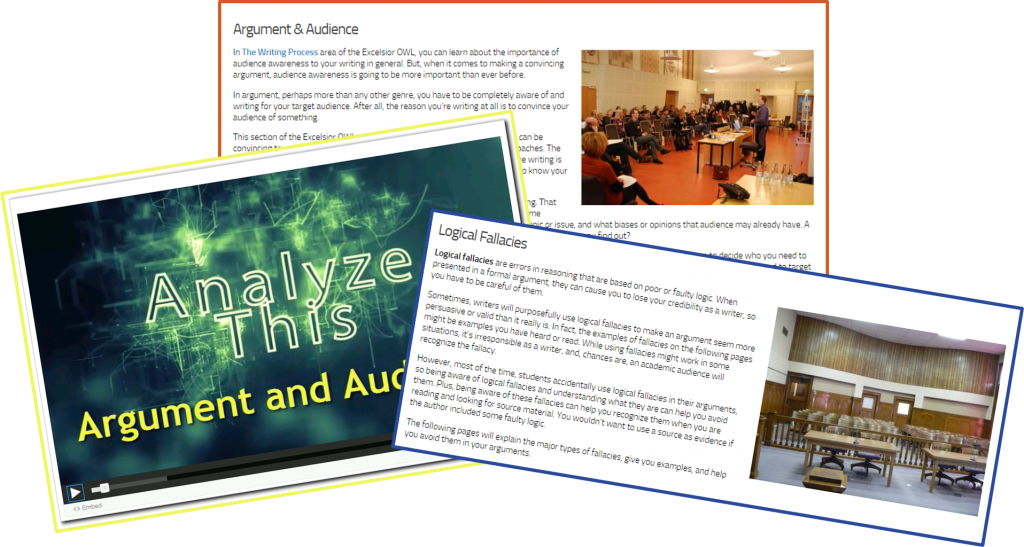
My Advanced Composition courses especially benefit from the Argument & Critical Thinking section of the OWL. In both College Composition and Advanced Composition I require students to write rhetorical analyses, so the sections on Argument & Audience and Argument Analysis are always helpful. Every semester I assign the Analyze This video wherein a student walks through an analysis of political ads. While I use the Modes of Persuasion section in both courses, in Advanced Composition I’ve found the Logical Fallacies section particularly helpful. After students review the logical fallacies on their own (they love the various videos in this section), they try to identify logical fallacies in a persuasive essay of their choosing.
This semester I am teaching an accelerated Developmental English course and I’ve found the Writing Process and Grammar Essentials sections invaluable (as well as all of the support offered by the ORC). In class the first week, we go over the Prewriting Strategies together and discuss which they’re familiar with. For homework, they watch the See it in Practice: Prewriting Strategies and do the Time to Write exercise, which asks them to try out at least two strategies. The next class, they bring their prewriting to discussion and we talk about what has and hasn’t worked for them. Another way that I use the OWL is to direct students to Grammar Essentials. Because most students struggle with comma usage, I often devote an entire class period to the tutorial on Commas. I start with the Try it Out interactive quiz and we take it together in class. Developmental students are often surprised by the rules regarding comma usage; afterwards, we go through the tutorial on the rules. Typically, I do this when they have a draft of their own writing in front of them so they can apply the rules to their paper. For example, after learning about FANBOYS, we look for coordinating conjunctions in their own writing to make sure they’re not creating comma splices.
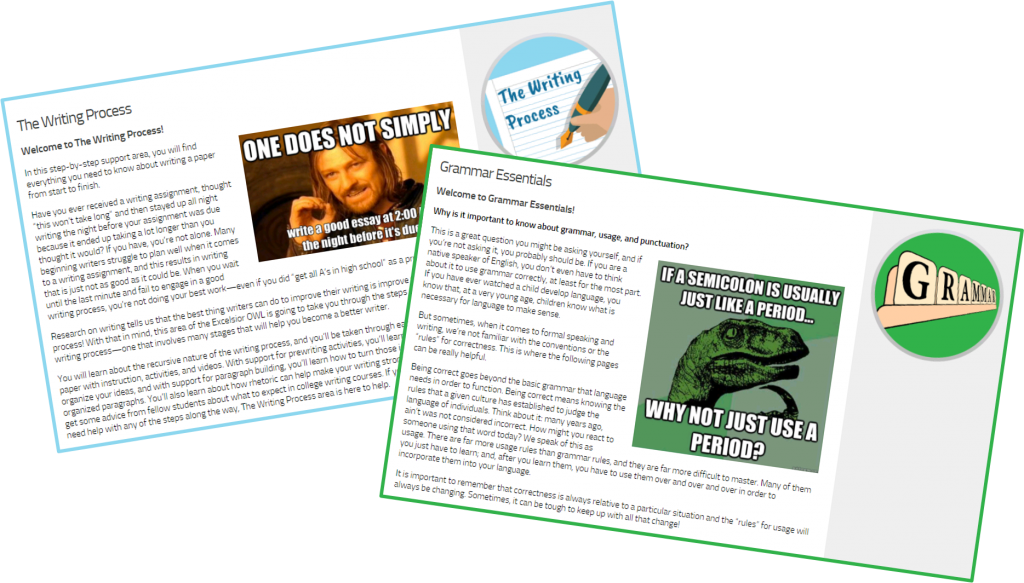
I often require my Developmental English students to revise sentences that I’ve marked for grammatical errors; again, I point them to the tutorials in Grammar Essentials and ask them to review and then resubmit at least five corrected sentences for a homework grade. I also ask them to do weekly blogs wherein they identify what grammar or writing skill they’re working to improve based on feedback they’ve received from me, their peers, and/or tutors. I ask them to identify which parts of the OWL they’re using to help them strengthen these skills and to articulate what they’ve learned from the OWL’s tutorials.
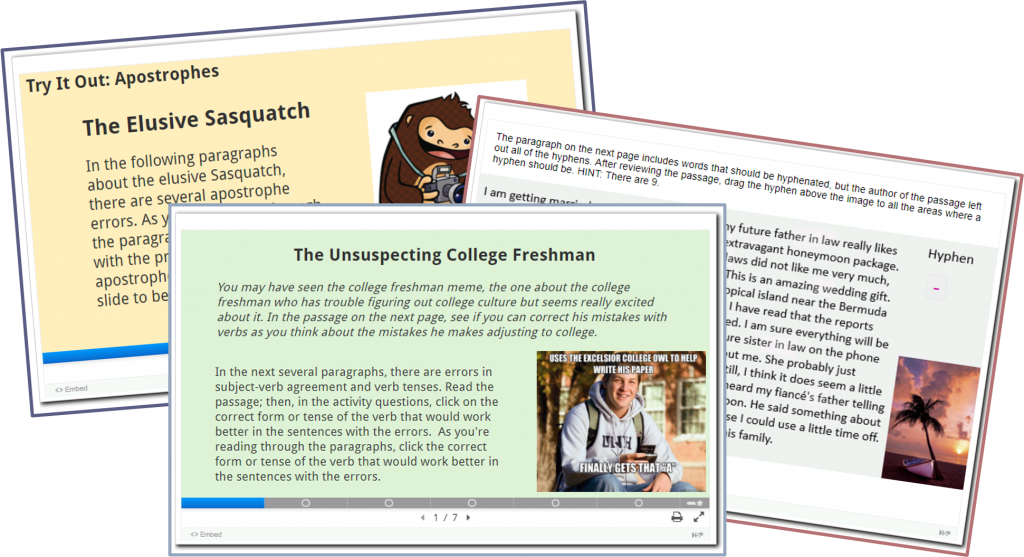
In fact, the Grammar Essentials section is of use in all of my courses. When students submit papers (all of my students submit their essays electronically), I can hyperlink to the OWL’s Grammar Essentials section when I identify recurring errors. For example, if a student is misusing apostrophes, I copy/paste the link to the Apostrophes tutorial and encourage them to grow their knowledge by reviewing the information there. In the menu in all of my Blackboard courses, I have embedded a link directly to the Writing Process, Grammar Essentials, and the ESL Writing Online Workshop.
Similarly, I’ve found that all of my students benefit from being provided a direct link to the Citation & Documentation section of the OWL. Students really appreciate the MLA Checklist (I print copies for them, as well) and the interactivity of the tutorials and references.
In sum, the OWL has not only replaced my primary textbooks in these courses; it has provided a superior product for students because of its rich, flexible, multimodal content. It’s free, so my students have immediate access to it. Moreover, they can carry it with them; over and again students tell me they have bookmarked it so they can use it in all of their classes.
Elizabeth Johnston, PhD, is an Associate Professor at Monroe Community College in Rochester, NY. She has been teaching College Composition for twenty years and serves on the OWL Advisory Board.
